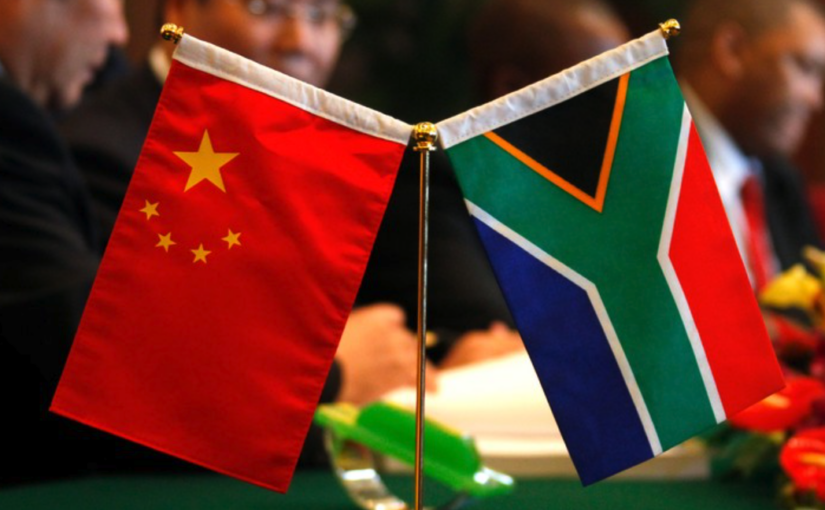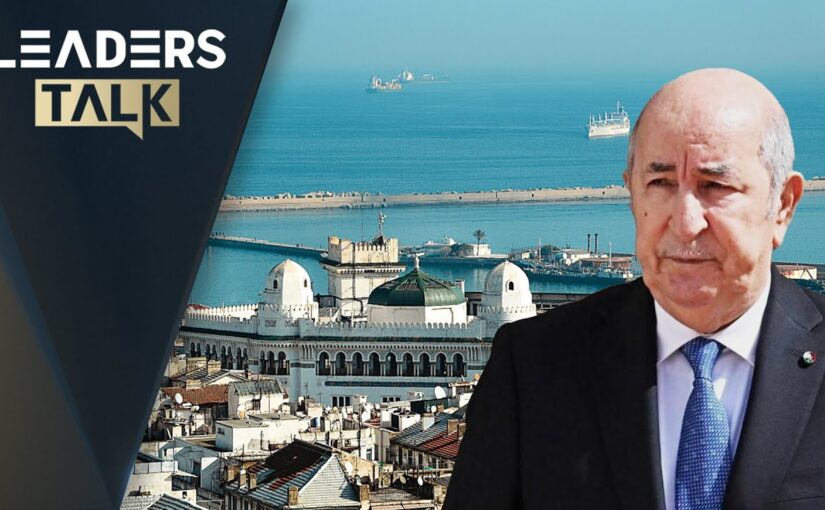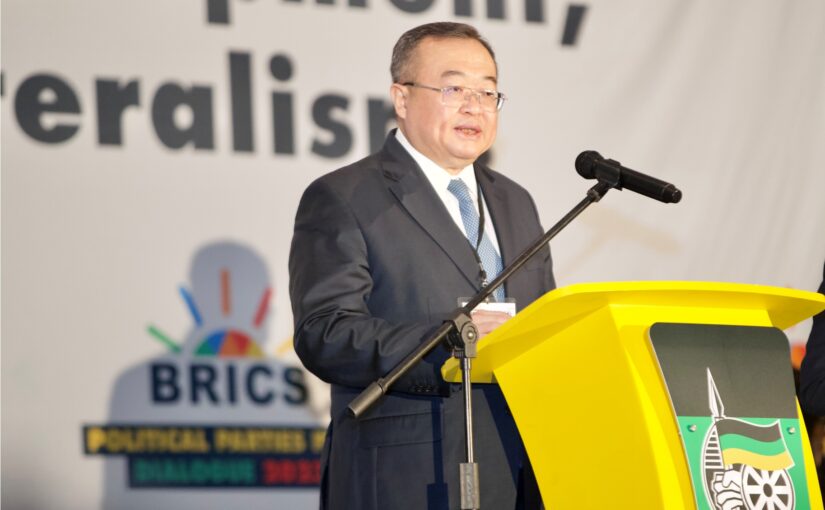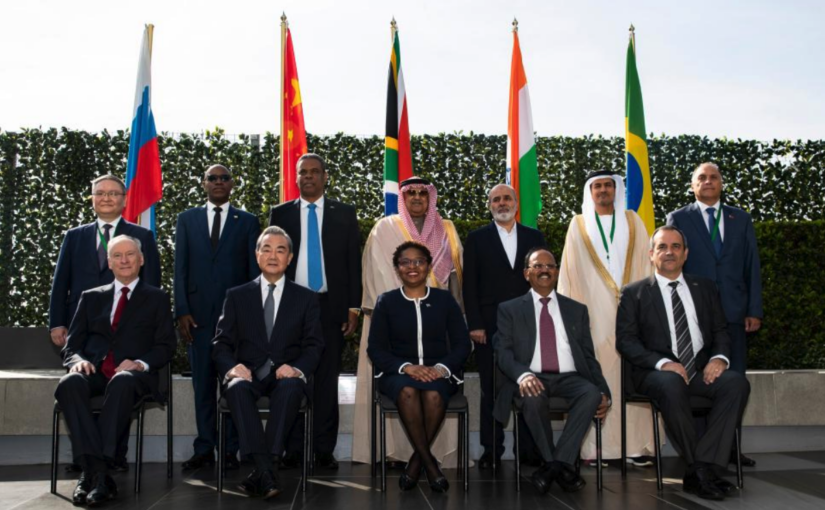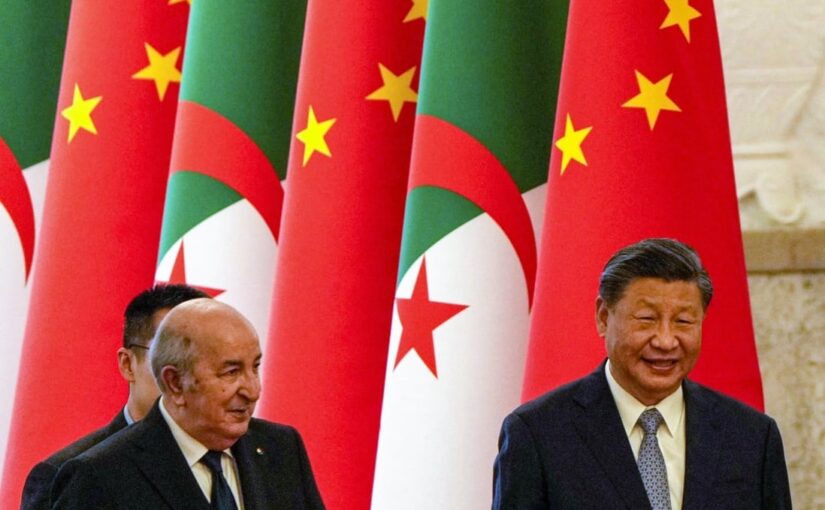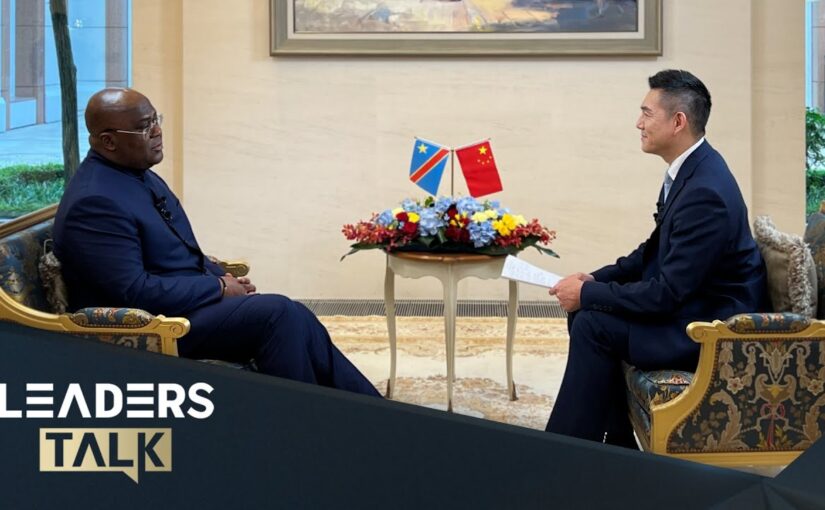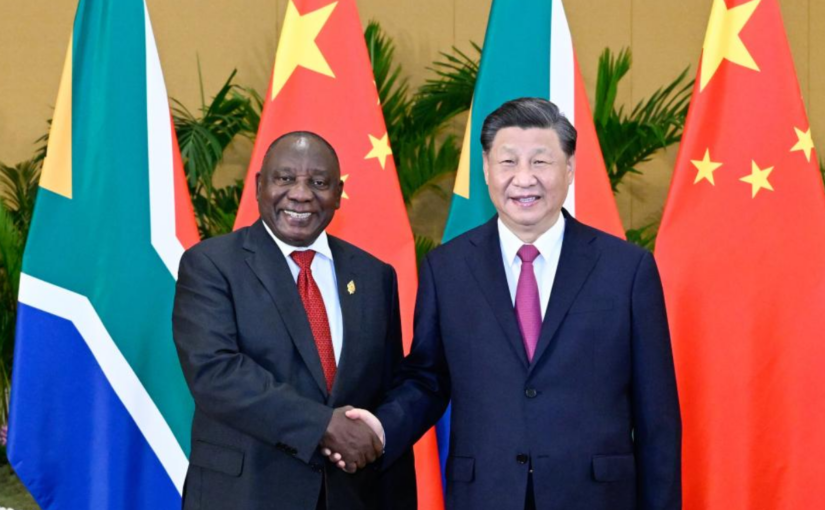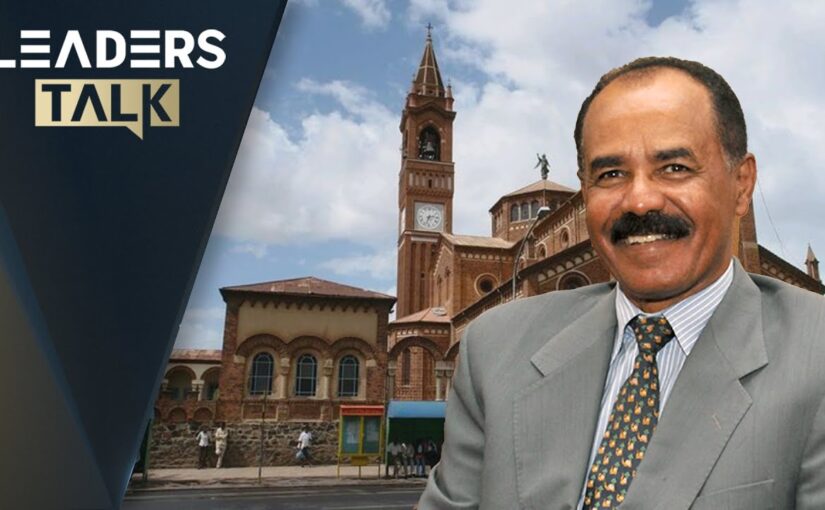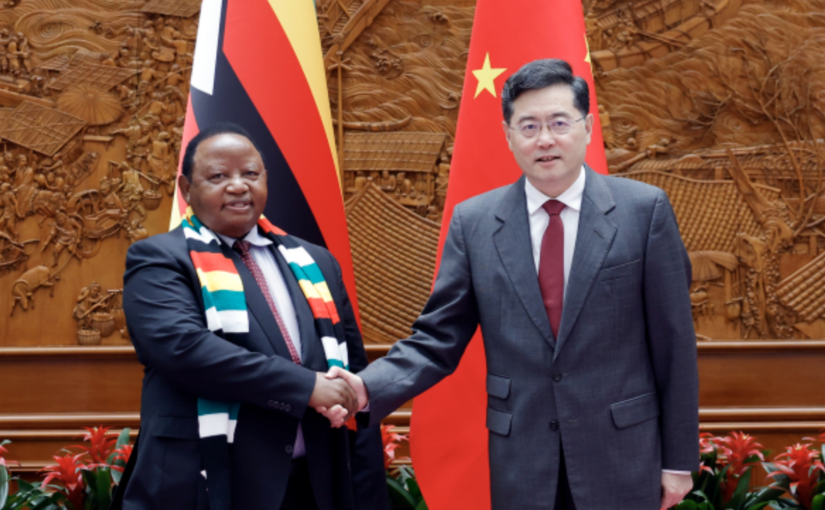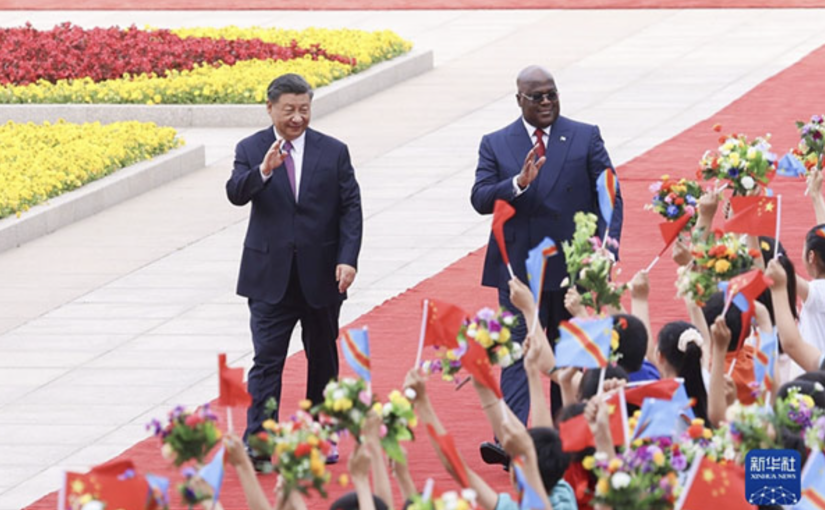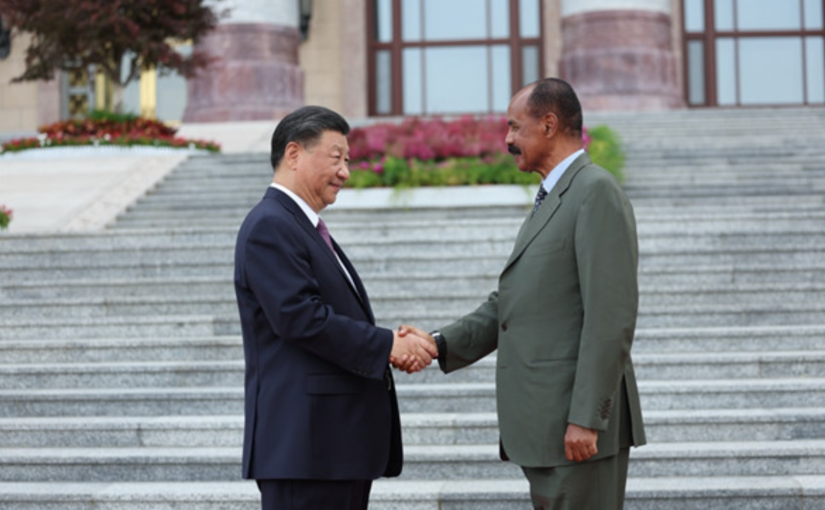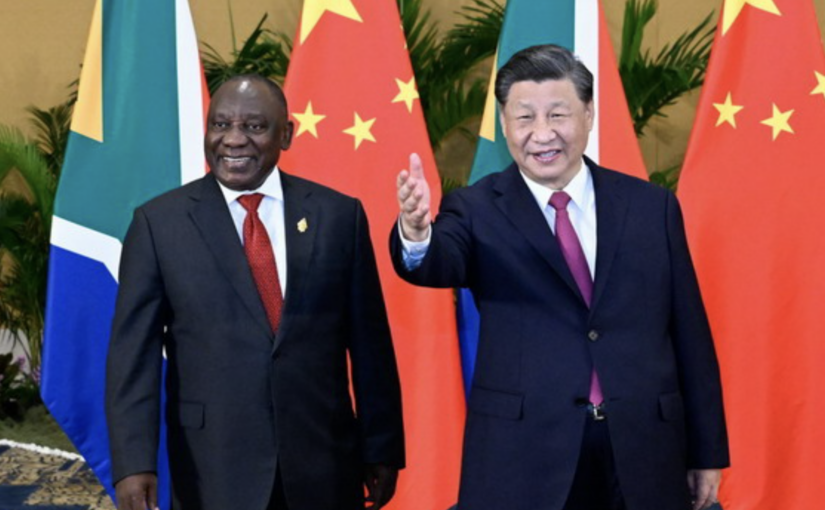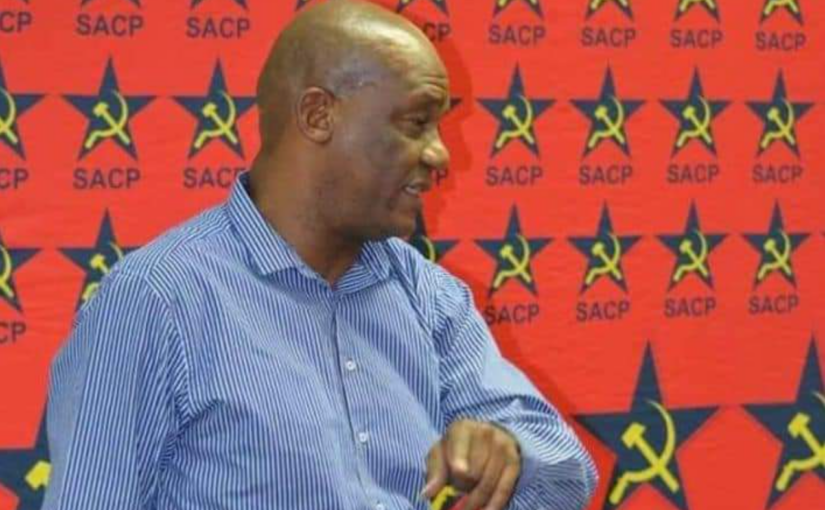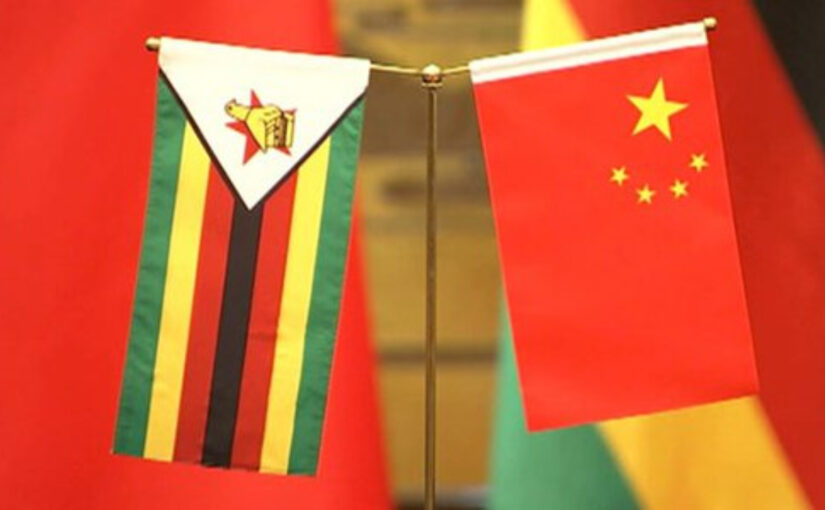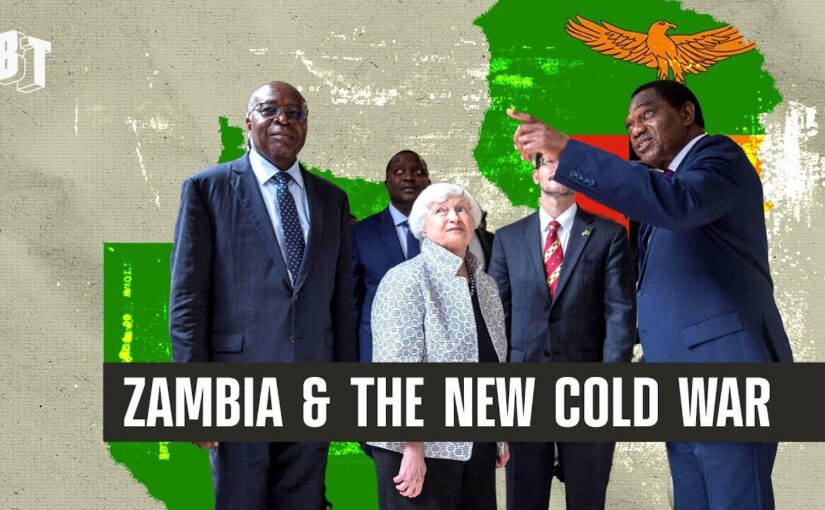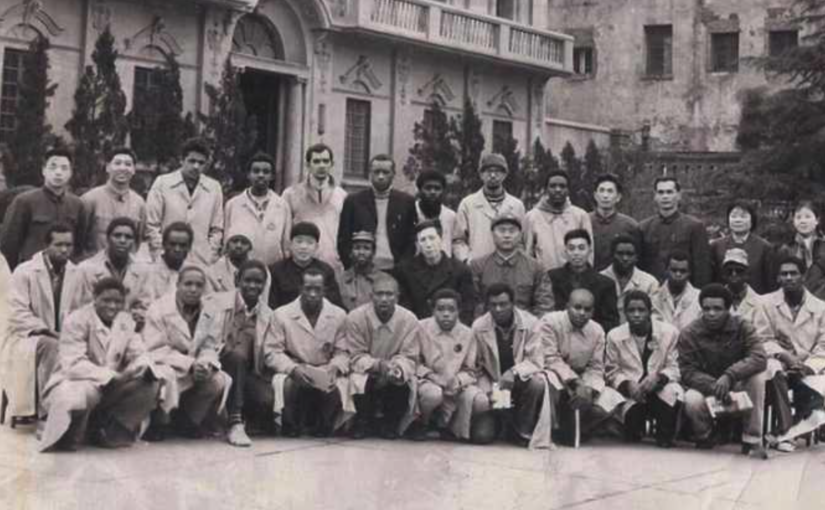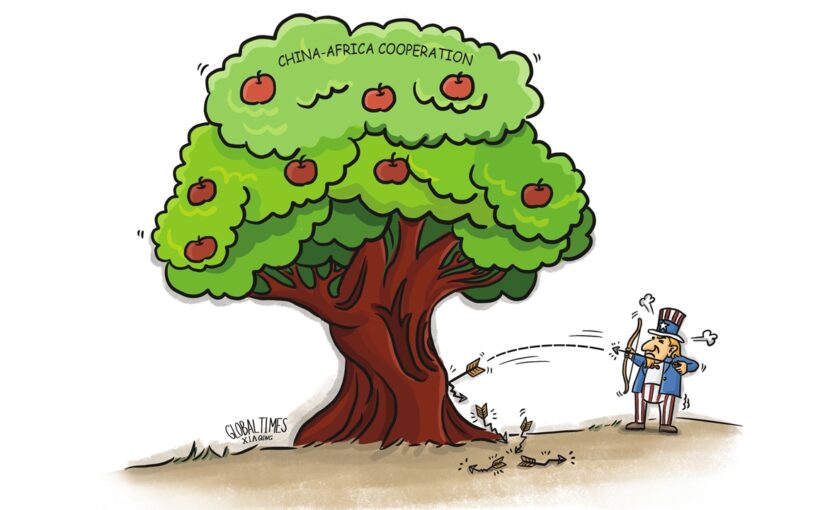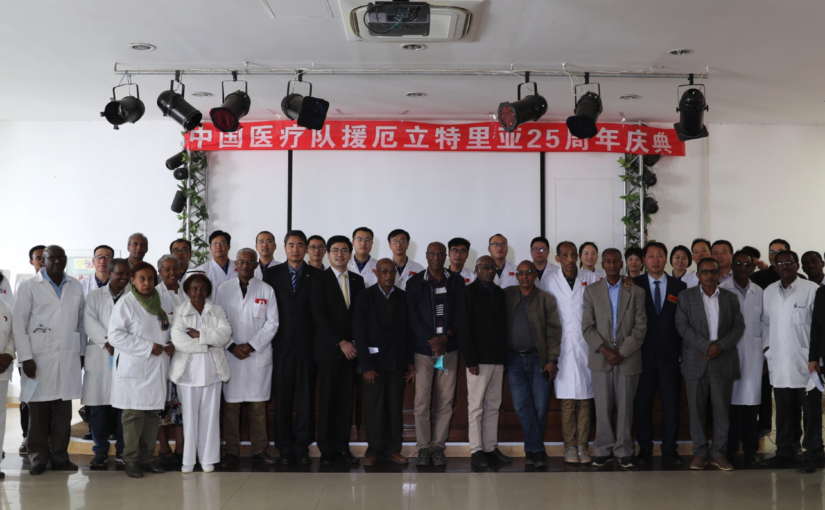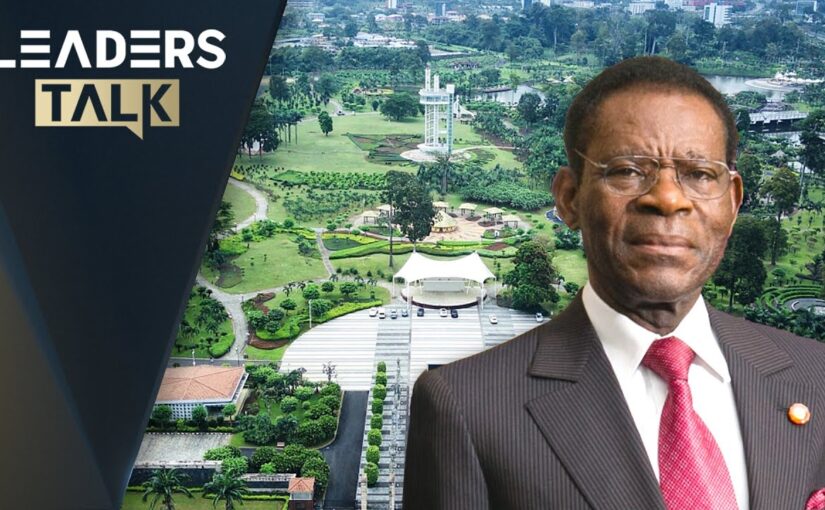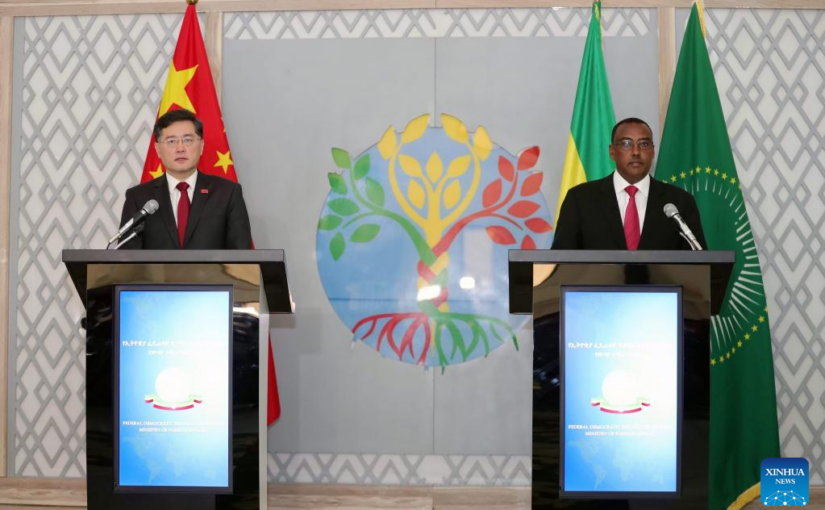The President of the Democratic Republic of the Congo (DRC), Félix Antoine Tshisekedi Tshilombo, paid a state visit to China at the invitation of his counterpart, President Xi Jinping, May 24-29.
Meeting on May 26, the two heads of state announced the elevation of their bilateral relationship from a strategic partnership of win-win cooperation to a comprehensive strategic cooperative partnership.
Xi Jinping pointed out that China and the DRC have established a profound traditional friendship in the historical process of striving for national liberation and opposing colonial aggression, and the two countries are strategic partners sharing broad common understandings and working jointly for common progress.
This statement of President Xi carries deep and profound historical content and significance. When the founding father of the DRC, the Pan-Africanist and revolutionary socialist Patrice Lumumba, was murdered by the imperialists and their local stooges in 1961, millions of people across China gathered to express their militant solidarity with the Congolese people and mourn for their slain leader. Premier Zhou Enlai presided over one such gathering of 100,000 people in Beijing’s Workers’ Stadium.
On November 29 1964, when the US and other imperialist powers escalated their overt intervention in the Congo in response to the tenacious resistance of the Congolese people, millions of Chinese again mobilized in solidarity. Mao Zedong, joined by other senior Chinese leaders, including Zhou Enlai, Liu Shaoqi, Zhu De, Deng Xiaoping, Peng Zhen, Dong Biwu and Guo Moro, presided over a mass rally of 700,000 people in Beijing’s Tiananmen Square. Similar gatherings took place in Shanghai, Guangzhou, Xian, Kunming and across the country.
The previous day, Chairman Mao had issued a statement in support of the Congolese people and against US aggression. US imperialism, the Chinese leader noted, had “murdered the Congolese national hero Lumumba, and subverted the lawful Congolese government. It imposed the puppet Tshombe on the Congolese people, and dispatched mercenary troops to suppress the Congolese national liberation movement. And now, in collusion with Belgium and Britain, it is carrying out direct armed intervention in the Congo. In doing this, the purpose of US imperialism is not only to control the Congo, but to also once again enmesh the whole of Africa, particularly the newly independent African countries, in the grip of US neo-colonialism. US aggression has encountered heroic resistance from the Congolese people and aroused the indignation of the people of Africa and the whole world.”
Mao’s statement continued:
“Congolese people, you are not alone in your just struggle. All the Chinese people are with you. All people throughout the world who oppose imperialism are with you… By strengthening national unity and persevering in protracted struggle, the Congolese people will certainly be victorious and US imperialism will certainly be defeated.”
China’s solidarity with the Congolese people’s struggle was not confined to words and gestures. Throughout the 1960s, China rendered significant moral and material support to the armed struggle of the Congolese people against imperialism and neo-colonialism waged by such historic leaders as Laurent-Désiré Kabila and Antoine Gizenga.
Having referred to this history, Xi Jinping went on to say that China has been the largest trading partner and largest source of foreign investment for the DRC for many consecutive years. The successful experience of Chinese modernization shows that developing countries have the right and ability to explore paths to modernization suited to their national conditions. China is ready to work with the DRC to further synergize their development strategies, and to support each other and pursue cooperation for greater development and common progress on their paths to development and revitalization.
Xi Jinping pointed out that China will continue to provide assistance for the economic and social development of the DRC, support the DRC’s industrialization strategy, strengthen cooperation with the DRC in such fields as energy, minerals, agriculture, infrastructure and manufacturing, and further tap into their potential for cooperation in such fields as digital economy, education and health. China is also ready to send agricultural technology experts to the DRC.
Under the current international circumstances, he noted, China and Africa should strengthen solidarity and cooperation more than ever. Both sides should stay committed to the basic norms governing international relations, reject all forms of hegemonism and power politics, oppose interference in other countries’ internal affair, and safeguard the common interests of developing countries.
Having congratulated Xi on his re-election as General Secretary of the Communist Party of China and as President of China, President Tshisekedi noted that the friendly cooperation between the DRC and China, having withstood the test of time and achieved fruitful results over the past half a century, deserves to be cherished by both sides. He thanked China for its important help and valuable support for the DRC’s economic and social development over the years, and stressed that the DRC remains firmly committed to the one-China policy and firmly supports China’s efforts to realize national reunification.
After the talks, the two heads of state jointly witnessed the signing of multiple bilateral cooperation agreements in such areas as investment, green economy and digital economy.
President Tshisekedi also met with other Chinese leaders, including Premier Li Qiang. Premier Li noted that China and the DRC are good friends, partners and brothers, adding that bilateral relations will surely achieve greater development and better benefit the two peoples. For his part, Tshisekedi noted that the DRC highly values cooperation with China and is willing to learn from China’s experience in its leapfrog development.
In the joint statement signed by the two heads of state, China and the DRC agreed to expand cooperation in education, scientific research, health, infrastructure construction, mining, agriculture, digital, environment, sustainable development, hydrocarbon fuels, energy, defense and security, and other fields in line with the interests of both sides.
China reiterated its firm support for the Congolese side in safeguarding national independence, sovereignty and territorial integrity, safeguarding its own security and development interests, firmly supporting the Congolese side in steadily advancing major domestic political agendas, firmly supporting the Congolese people in independently choosing a development path suited to their national conditions, and resolutely opposing interference by external forces in the internal affairs of the Democratic Republic of the Congo.
They agreed to strengthen cooperation in the field of peace and security, especially closer military exchanges between the two countries, cooperation in personnel training, combating transnational crime, equipment technology, military industry, joint exercises and training.
China will encourage more enterprises to invest in the Democratic Republic of the Congo and participate in infrastructure construction in accordance with the relevant plans formulated and recommended by the DRC, so as to help the diversified development and industrialization of the Congolese economy. And it will strengthen mutually beneficial cooperation in agriculture, processing and manufacturing, natural resource exploration, development, and local processing to increase its added value, and support the Congo in achieving independent and sustainable development.
The two sides agreed to regularly evaluate mining cooperation and consolidate relevant cooperation based on the long-term and mutual interests of the two countries. With an attitude of mutual trust, pragmatism and fairness, problems arising in the process of cooperation should be resolved through friendly consultations. China will continue to encourage enterprises to accelerate the implementation of agreed infrastructure projects, strengthen cooperation with the Congolese mining sector, encourage enterprises to participate in investment in the development of the new energy battery value chain, support the upgrading of the industrial chain and enhance independent development capabilities.
They also agreed to deepen high-quality cooperation under the framework of the Belt and Road Initiative. China welcomes the Democratic Republic of the Congo to join the Group of Friends of the Global Development Initiative. The DRC is willing to strengthen cooperation with China at the bilateral and multilateral levels on the implementation of the Global Development Initiative, the Global Security Initiative and the Global Civilization Initiative.
President Xi Jinping was invited to pay a state visit to the Democratic Republic of the Congo. The specific date will be agreed through diplomatic channels.
Immediately prior and preparatory to the state visit, the DRC’s Vice Prime Minister and Foreign Minister Christophe Lutundula visited China at the invitation of State Councilor and Foreign Minister Qin Gang.
Qin said that China is willing to help the DRC to turn its resource advantages into a driving engine for economic development, and hopes that the DRC could create a sound business environment and provide security guarantee for Chinese investors, adding that both sides should strengthen solidarity and coordination at the UN and on other multilateral occasions, firmly safeguard the principle of non-interference in other countries’ internal affairs, safeguard the common interests of developing countries, and jointly develop fairer and more equitable international order and global governance.
Alexis Gisaro Muvuni, DRC’s minister of state for infrastructure and public works, a member of President Tshisekedi’s delegation, in an interview with Xinhua prior to the visit, praised the results of the two countries’ infrastructure cooperation, such as the People’s Palace, home to the National Assembly and the Senate, and the Martyrs Stadium, which can accommodate 80,000 people. The minister said that Chinese companies genuinely support Africa by building infrastructure, including roads and bridges, and bring tangible benefits to the Congolese people.
The following articles were originally carried on the websites of the Chinese Foreign Ministry, Xinhua News Agency and People’s Daily. The Joint Statement was machine translated from Chinese and lightly edited by us.
Xi Jinping Holds Talks with DRC President Félix-Antoine Tshisekedi Tshilombo
Chinese Foreign Ministry, 26 May 2023
On the afternoon of May 26, 2023, President Xi Jinping held talks at the Great Hall of the People with President Félix-Antoine Tshisekedi Tshilombo of the Democratic Republic of the Congo (DRC) who was in China for a state visit. The two heads of state announced the elevation of the bilateral relationship from a strategic partnership of win-win cooperation to a comprehensive strategic cooperative partnership.
Xi Jinping pointed out that China and the DRC have established a profound traditional friendship in the historical process of striving for national liberation and opposing colonial aggression, and the two countries are strategic partners sharing broad common understandings and working jointly for common progress. Xi said in recent years, bilateral cooperation in various fields has yielded fruitful results. China has been the largest trading partner and largest source of foreign investment for the DRC for many consecutive years, and the two sides have become a close-knit community with shared interests and a shared future. The successful experience of Chinese modernization shows that developing countries have the right and ability to explore paths to modernization suited to their national conditions. China is ready to work with the DRC to further synergize their development strategies, and support each other and pursue cooperation for greater development and common progress on their paths to development and revitalization. Xi Jinping expressed the confidence that China’s high-quality development will create more cooperation opportunities and a broader market for the DRC, and promote greater progress of bilateral relations.
Xi Jinping pointed out that China will continue to provide assistance for the economic and social development of the DRC, support the DRC’s industrialization strategy, strengthen cooperation with the DRC in such fields as energy, minerals, agriculture, infrastructure and manufacturing, and further tap into their potential of cooperation in such fields as digital economy, education and health. China is also ready to send agricultural technology experts to the DRC. China hopes that the DRC will provide policy support and convenient services to Chinese enterprises investing and doing business in the DRC, and foster a fair, just, and safe business environment. China is ready to work with the DRC to strengthen coordination and cooperation in multilateral affairs, jointly practice true multilateralism, and uphold international fairness and justice.
Xi Jinping stressed that China and Africa, being the world’s largest developing country and the continent home to the largest number of developing countries, have always been a community with a shared future. Under the current international circumstances, China and Africa should strengthen solidarity and cooperation more than ever. Both sides should stay committed to carrying on the basic norms governing international relations, reject all forms of hegemonism and power politics, oppose interference in other countries’ internal affair, and safeguard the common interests of developing countries. China firmly supports Africa in pursuing an independent development path and becoming an important pole in the world politically, economically, and culturally. China is ready to create new opportunities for African countries with its own new development, and will work with African brothers to follow through on the outcomes of the Dakar meeting of the Forum on China-Africa Cooperation, advance the Belt and Road cooperation, support Africa in achieving sustainable development, and jointly build a China-Africa community with a shared future in the new era.
On behalf of the people of the DRC, Tshisekedi once again expressed warm congratulations on the success of the 20th National Congress of the Communist Party of China (CPC) and the Two Sessions of China, on President Xi Jinping’s re-election as General Secretary of the CPC Central Committee and President of China, and on China’s great achievements in the new era under the leadership of President Xi Jinping. He expressed the confidence that China will realize the second centenary goal. Tshisekedi noted that the friendly cooperation between the DRC and China, having withstood the test of time and achieved fruitful results over the past half a century, deserves to be cherished by both sides. He thanked China for its important help and valuable support for the DRC’s economic and social development over the years, and stressed that the DRC remains firmly committed to the one-China policy and firmly supports China’s efforts to realize national reunification. The DRC is ready to work with China to deepen cooperation in such areas as economy, trade, resources, infrastructure and healthcare, enrich the DRC-China comprehensive strategic cooperative partnership, and build a mature, stable and groundbreaking DRC-China relationship for the benefit of the two peoples.
After the talks, the two heads of state jointly witnessed the signing of multiple bilateral cooperation agreements in such areas as investment, green economy and digital economy.
The two sides issued a Joint Statement on Establishing a Comprehensive Strategic Cooperative Partnership between the People’s Republic of China and the Democratic Republic of the Congo.
Chinese premier meets with DRC president
Xinhua, 26 May 2023
Chinese Premier Li Qiang met with visiting President of the Democratic Republic of the Congo (DRC) Felix-Antoine Tshisekedi Tshilombo here on Friday.
Noting that China and the DRC are good friends, partners and brothers, Li said under the strategic guidance of the two heads of state, bilateral relations will surely achieve greater development and better benefit the two peoples.
China is willing to further synergize development strategies with the DRC, work for open cooperation that is mutually beneficial, share development opportunities, jointly promote the development and prosperity of the two countries, said the premier.
Li urged efforts to further expand trade and investment cooperation, boost cooperation in such traditional fields as infrastructure construction and mining industry, and actively explore new growth drivers of cooperation in such areas as agriculture, finance, new energy, and cultural and people-to-people exchange.
It is hoped the DRC can provide a fair and just business environment for Chinese enterprises to make investment in the country, and better guarantee the security and legitimate rights and interests of Chinese citizens and institutions there, Li said.
China will further enhance unity and cooperation with African countries at large including the DRC, support the implementation of the African Union’s Agenda 2063 and the economic recovery and sustainable development in Africa after the pandemic, Li added.
Noting the DRC highly values cooperation with China, Tshisekedi said the country is willing to learn from China’s experience in its leapfrog development, further promote bilateral cooperation, consolidate friendship between the two peoples, and jointly respond to climate change and other global challenges.
Joint statement of the People’s Republic of China and the Democratic Republic of the Congo on the establishment of a comprehensive strategic cooperative partnership
People’s Daily (Chinese), 27 May 2023
At the invitation of President Xi Jinping of the People’s Republic of China, the President of the Democratic Republic of the Congo, Félix Antoine Tshisekedi Tshilombo, paid a state visit to the People’s Republic of China from May 24 to May 29,2023.
During the visit, the two heads of state held talks in a cordial and friendly atmosphere, exchanged in-depth views on China-Congo and China-Africa relations and international and regional issues of common concern, and reached broad and important consensus.
Li Qiang, Premier of the State Council of the People’s Republic of China, and Zhao Leji, Chairman of the Standing Committee of the National People’s Congress, separately met with President Tshisekedi.
The two heads of state said that since the normalization of diplomatic relations between the People’s Republic of China and the Democratic Republic of the Congo in 1972, the friendship between the two countries has stood the test of time and endured for 51 years, benefiting the two peoples.
The two heads of state expressed satisfaction with this and believed that China-Congo friendship is a common precious wealth of both sides and worthy of continuous strengthening and meticulous safeguarding by both sides. In order to further consolidate political mutual trust and deepen and expand practical cooperation in various fields, the two heads of state announced that their bilateral relations will be upgraded to a comprehensive strategic cooperative partnership.
The Congo once again warmly congratulated the 20th National Congress of the Communist Party of China and the national parliamentary ‘Two Sessions’ President Tshisekedi warmly congratulated President Xi Jinping on his outstanding leadership of China and his re-election as General Secretary of the Central Committee of the Communist Party of China and President of the People’s Republic of China.
The Parties agree that:
(1) We will further give play to the leading role of the head of state diplomacy, maintain the momentum of political dialogue and high-level exchanges between the two countries, and strengthen mutual trust and joint efforts between the two countries;
(2) Further enhance China-Congo relations and expand cooperation to education, scientific research, health, infrastructure construction, mining, agriculture, digital, environment, sustainable development, hydrocarbon fuels, energy, defense and security and other fields in line with the interests of both sides;
(3) To continuously enhance people-to-people exchanges between the two countries, carry out close cultural exchanges and interactions, promote tourism, and consolidate the achievements made in the field of human rights in a spirit of independence and mutual respect;
(4) Maintain consultations to revitalize the mechanism of the Economic and Trade Mixed Commission of the two countries as a powerful framework for planning, promoting and guiding bilateral cooperation, and jointly promote the comprehensive strategic cooperative partnership;
(5) Strengthen the exchange of experience, better align the goals of Chinese-style modernization and the Democratic Republic of the Congo, and establish a fruitful, innovative, fair, closer and more stable strategic partnership;
(6) Strengthening mutual support on issues involving each other’s core interests is the core essence of China-Congo relations. Here, China reiterates its firm support for the Congolese side in safeguarding national independence, sovereignty and territorial integrity, safeguarding its own security and development interests, firmly supporting the Congolese side in steadily advancing major domestic political agendas, firmly supporting the Congolese people in independently choosing a development path suited to their national conditions, and resolutely opposing interference by external forces in the internal affairs of the Democratic Republic of the Congo. The Congolese side reaffirms its firm adherence to the one-China principle, considers Taiwan to be an inalienable part of China, and opposes any words and deeds that undermine China’s sovereignty and territorial integrity;
(7) To support each other in international affairs and defend the international order based on international law and norms governing international relations in accordance with the purposes and principles of the Charter of the United Nations and relevant international conventions;
(8) Strengthen solidarity and cooperation among countries, support true multilateralism, and promote the building of a community with a shared future for humanity;
(9) Strengthen cooperation in the field of peace and security, especially closer military exchanges between the two countries, cooperation in personnel training, combating transnational crime, equipment technology, military industry, joint exercises and training. The two sides agreed to strengthen the protection of the security and legitimate rights and interests of citizens and institutions of the other side in their respective territories. China has provided assistance to the Democratic Republic of the Congo in the implementation of the Military Planning Law and military capacity building.
(10) Promote cooperation in the field of investment under the framework of the strategic partnership established by the mixed committee, in accordance with market rules and the terms of relevant contracts signed. The two sides are willing to promote the high-quality development of investment cooperation between the two countries in accordance with the principle of marketization and the spirit of the contract. China will encourage more enterprises to invest in the Democratic Republic of the Congo and participate in infrastructure construction in accordance with the relevant plans formulated and recommended by the Democratic Republic of the Congo, so as to help the diversified development and industrialization of the Congolese economy. China will help the Congo implement its digital transformation plan, continue to expand investment and financing cooperation with the Congo, strengthen mutually beneficial cooperation in agriculture, processing and manufacturing, natural resource exploration, development, and local processing to increase its added value, and support the Congo in achieving independent and sustainable development. The Congo will further improve the business environment, provide good conditions for Chinese enterprises to operate in the Democratic Republic of the Congo, and effectively protect their legitimate rights and interests, while Chinese enterprises must abide by the laws and regulations of the Democratic Republic of the Congo;
(11) Regularly evaluate mining cooperation and consolidate relevant cooperation based on the long-term and mutual interests of the two countries. In an attitude of mutual trust, pragmatism and fairness, problems arising in the process of cooperation should be resolved through friendly consultations. China will continue to encourage enterprises to accelerate the implementation of agreed infrastructure projects, strengthen cooperation with Congolese mining, encourage enterprises to participate in investment in the development of the new energy battery value chain, and support the upgrading of the industrial chain and enhance independent development capabilities.
(12) Strengthen consultation and coordination on the affairs of the Forum on China-Africa Cooperation (FOCAC), highly value the important role of FOCAC in promoting the comprehensive strategic cooperative partnership between China and Africa, and jointly implement practical cooperation in various fields within the framework of the Dakar Action Plan (2022-2024);
(13) Deepen high-quality cooperation under the framework of the Belt and Road Initiative.
China welcomes the Democratic Republic of the Congo to join the Group of Friends of the Global Development Initiative. The Democratic Republic of the Congo is willing to strengthen cooperation with China at the bilateral and multilateral levels on the implementation of the Global Development Initiative, the Global Security Initiative and the Global Civilization Initiative.
China is highly concerned about the situation in eastern Congo and believes that the countries of the Great Lakes region are a community of shared destiny and security. China calls on all countries concerned to abide by the purposes and principles of the Charter of the United Nations and the Constitution of the African Union and to respect and safeguard the sovereignty, security and territorial integrity of member States. China condemns the violence and human rights abuses committed by armed groups, expresses its sympathy to the Congolese people who have suffered from criminal acts, and supports the re-establishment of confidence and peace through the implementation of the Nairobi Process and the Luanda Road Map. China supports the efforts of relevant regional organizations to restore peace and security in eastern Congo. China firmly supports Africans in resolving African issues in African ways and supports and encourages relevant regional organizations and the UN Secretary-General’s Special Envoy on the Great Lakes Region to continue to play a constructive role.
China appreciates President Tshisekedi’s insistence on putting “people first” as his policy, as put forward by President Xi Jinping in his people-centered development thinking. President Xi spoke highly of the remarkable achievements made by the Democratic Republic of the Congo under the leadership of President Tshisekedi in advancing the domestic political, economic and social development agenda, safeguarding national security, stability and territorial integrity, and enhancing the country’s international influence. China believes that under the leadership of President Tshisekedi, the Democratic Republic of the Congo will accelerate the realization of peace and stability throughout its territory and rapidly restart economic and social development.
The Congolese side highly appreciates China’s support for projects such as the Central African Culture and Art Center and the Koluvić Vocational and Technical Training School. China will strengthen cooperation with the Democratic Republic of the Congo in vocational and technical education and continue to send medical teams to the Democratic Republic of the Congo.
The two sides undertake to implement the important consensus reached during the visit and relevant cooperation agreements.
The two sides agreed that the complete success of President Tshisekedi’s visit to China is of great significance to promoting the development of China-Congo relations and promoting the building of a China-Africa community with a shared future in the new era.
President Tshisekedi expressed his heartfelt thanks to President Xi Jinping and the Chinese government and people for the warm and friendly reception extended to his wife and the Congolese delegation during his visit, and invited President Xi Jinping to pay a state visit to the Democratic Republic of the Congo, the specific date to be agreed upon by the diplomatic channels of the two sides.
Chinese FM meets DRC vice PM
Xinhua, 23 May 2023
Chinese State Councilor and Foreign Minister Qin Gang on Monday met in Beijing with Christophe Lutundula, Vice Prime Minister and Foreign Minister of the Democratic Republic of the Congo (DRC).
Noting China and the DRC are good friends and brothers that enjoy a time-honored friendship, Qin said China warmly welcomes President Felix-Antoine Tshisekedi Tshilombo’s upcoming state visit to China and expects that the two heads of state will make top-level planning and define the strategic direction for the development of China-DRC relations in the next stage.
Qin pointed out that China has been the largest trading partner and source of investment to the DRC for many consecutive years. China will continue to work with the DRC to advance the building of high-quality Belt and Road cooperation, implement the consensus under the framework of the Forum on China-Africa Cooperation, and achieve win-win cooperation.
China is willing to help the DRC to turn the resource advantages into a driving engine for its economic development, and hopes that the DRC could create a sound business environment and provide security guarantee for Chinese investors, Qin said.
Qin said both sides should strengthen solidarity and coordination at the UN and other multilateral occasions, firmly safeguard the principle of non-interference in other countries’ internal affairs, safeguard the common interests of developing countries, and jointly develop fairer and more equitable international order and global governance.
Lutundula thanked China for its important assistance and valuable support to the DRC’s economic and social development over the years, noting that the DRC firmly upholds the one-China policy.
He said that the DRC will promote pragmatic cooperation in various fields and strengthen communication and coordination with China to bring more benefits to the two countries and peoples.
Interview: DRC-China infrastructure cooperation beneficial to Congolese people, says state minister
Xinhua, 25 May 2023
Infrastructure cooperation between the Democratic Republic of the Congo (DRC) and China has yielded fruitful results and practical benefits for the Congolese people, Alexis Gisaro Muvuni, DRC’s minister of state for infrastructure and public works, has said.
Before the DRC’s President Felix Tshisekedi’s state visit to China from May 24 to 29, Muvuni, a member of the Congolese government delegation, praised the infrastructure cooperation between both countries in an interview with Xinhua.
Since the 1970s, the Chinese government has aided the construction of projects such as the People’s Palace, home to the National Assembly and the Senate, and the Martyrs Stadium, said Muvuni.
“The People’s Palace is the place where major political events take place, while the Martyrs Stadium, which can accommodate 80,000 people, often holds various major events. So these projects testified to the vitality of China-Congo infrastructure cooperation,” he said, adding that the China-aided Haut-Katanga General Demonstration Hospital, which was handed over in 2020, is another example of such cooperation.
According to Muvuni, the China-aided Central African Cultural and Arts Center is the project that excites him the most. The project is considered one of Africa’s most significant China-aided initiatives and is expected to be completed by the year-end.
“This is another flagship project for the cooperation between the two countries,” said Muvuni, adding that he closely follows the art center’s construction progress.
Chinese companies and investors have vigorously promoted bilateral infrastructure cooperation and made concrete contributions to local communities over the years, Muvuni said.
He said that Chinese companies genuinely support Africa by building infrastructure, including roads and bridges, and bringing tangible benefits to the Congolese people.
Muvuni also expects closer commercial exchanges between the two countries to serve the bigger picture of the two economies.
